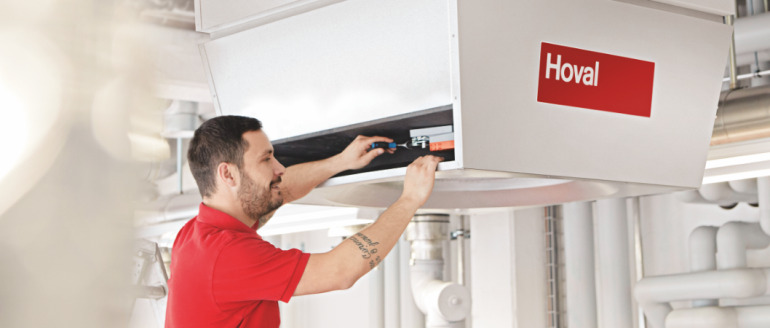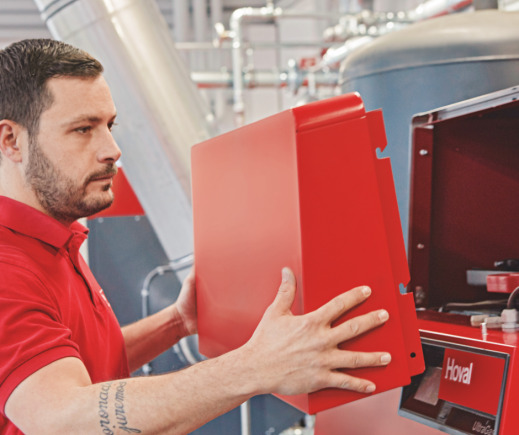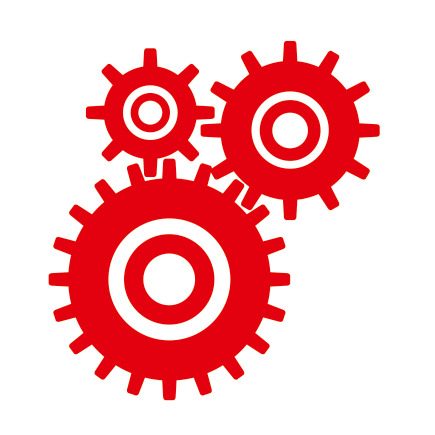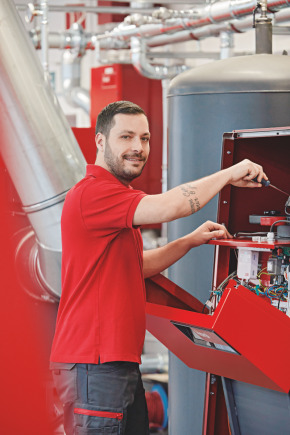Maintaining Optimum Performance

Maintaining Optimum Performance
The majority of building owners and operators recognise that maintenance of their heating and ventilation plant is necessary, if only to comply with relevant legislation.
- Blog
- End customer / Investor
However, there are still some who think of maintenance as a necessary evil, rather than something that benefits the organisation in many ways, so they do just the bare minimum.
Here, we discuss the range of benefits that result from a sensible, tailored maintenance regime.
Here, we discuss the range of benefits that result from a sensible, tailored maintenance regime.
Health, safety and compliance
Clearly, there are health and safety implications for heating, ventilation and air conditioning (HVAC) plant – as well as some industrial plant – ranging from ensuring safe combustion to maintaining acceptable indoor temperatures and air quality – as well as minimising harmful emissions to the atmosphere. All these issues need to be addressed to ensure compliance with regulations – but this is really just the ‘bare minimum’ and in most cases will not deliver maximum benefits to the organisation.

Reliability
Most buildings and many industrial processes are reliant on their HVAC and process heating systems to be able to function properly. A space heating system that frequently goes wrong and leaves inhabitants shivering at their workplace is hardly conducive to a healthy environment – and has a negative impact on productivity.
Similarly, a failure of process heat in a manufacturing process can lead to significant losses of productivity and profitability, and may compromise product quality and lead to delays in supplies to customers.
A suitable maintenance regime will help to ensure that the plant reliably delivers what is required of it, so that it supports the organisation’s activities, rather than hinders them. In some cases, the maintenance regime should be devised in relation to the organisation’s business priorities to ensure the right maintenance actions are carried out at the right time – neither too rarely nor too frequently.
Regular maintenance also helps to extend the life of plant, helping to reduce capital costs through the lifetime of the building.
A suitable maintenance regime will help to ensure that the plant reliably delivers what is required of it, so that it supports the organisation’s activities, rather than hinders them. In some cases, the maintenance regime should be devised in relation to the organisation’s business priorities to ensure the right maintenance actions are carried out at the right time – neither too rarely nor too frequently.
Regular maintenance also helps to extend the life of plant, helping to reduce capital costs through the lifetime of the building.

Efficiency
Energy efficiency is a major issue for any organisation, in terms of cost and environmental impact. Specifying or purchasing inherently efficient plant is the first step but that efficiency will be compromised if the plant is not maintained properly. For instance, if the heat exchanger in a boiler or heat recovery ventilation system becomes encrusted with deposits this will limit the amount of heat that can be transmitted through the exchanger.
Similarly, combustion processes need to ensure the best ratios of fuel and oxygen to maximise energy efficiency and minimise emissions.
Nor is it just the large items of plant that need to be regularly maintained, the control systems must also be regularly checked to ensure they are operating as intended.
Nor is it just the large items of plant that need to be regularly maintained, the control systems must also be regularly checked to ensure they are operating as intended.

Continuous commissioning
When a new HVAC system is properly commissioned, the control parameters will be set to reflect the anticipated use of the system – at that time. All too often, though, these control parameters are not revisited as the use of the building changes.
This is an increasingly important issue as organisations re-assess the use of their buildings in the light of increased working from home and more flexible working in general. Any changes in the occupancy of a building will inevitably alter the requirements for the HVAC systems, so control strategies should be regularly re-assessed in the light of such changes through a programme of ‘continuous commissioning’.
This is an increasingly important issue as organisations re-assess the use of their buildings in the light of increased working from home and more flexible working in general. Any changes in the occupancy of a building will inevitably alter the requirements for the HVAC systems, so control strategies should be regularly re-assessed in the light of such changes through a programme of ‘continuous commissioning’.
Summary
When an organisation makes a major investment in energy-efficient heating plant, there may be a temptation to tighten the purse strings when it comes to service & maintenance. However, for all of the reasons discussed above, maintenance regimes that just meet regulatory requirements are a false economy that could well increase the lifecycle costs of the equipment.
In contrast, a comprehensive maintenance strategy will pay its way by ensuring ongoing efficiency and longer plant life, as well as safety and reliability – which all adds up to a better return on investment.
To help our customers get the most from their investment, Hoval offers a range of service plans for our gas, oil & biomass boilers, CHP units, heat pumps and ventilation products. Customers can therefore select the plan that best suits their needs and business priorities, secure in the knowledge that they are truly maintaining optimum performance.
In contrast, a comprehensive maintenance strategy will pay its way by ensuring ongoing efficiency and longer plant life, as well as safety and reliability – which all adds up to a better return on investment.
To help our customers get the most from their investment, Hoval offers a range of service plans for our gas, oil & biomass boilers, CHP units, heat pumps and ventilation products. Customers can therefore select the plan that best suits their needs and business priorities, secure in the knowledge that they are truly maintaining optimum performance.
